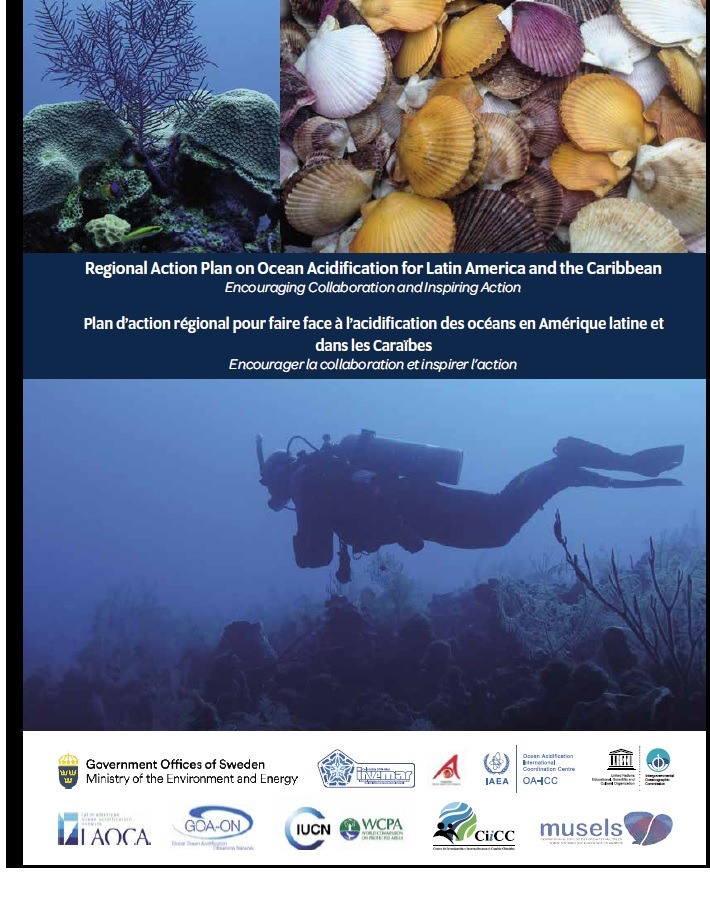
Regional Action Plan on Ocean Acidification for Latin America and the Caribbean Encouraging Collaboration and Inspiring Action
| Autores: | Laffoley, Laffoley, D., Baxter, James K. Sierra Correa, Paula Cristina Arias Isaza, Francisco Lagos, Nelson A. Graco, Michelle Jewett, Elizabeth Isensee, Kirsten |
Materia:551.46 - Oceanografía
Clasificación Thema::R - Ciencias de la Tierra, geografía, medioambiente, planificación
Público objetivo:Profesional / académico
Colección:Serie de Publicaciones Generales
Disponibilidad:Disponible
Estatus en catálogo:Próxima aparición
Publicado:2018-12-19
Número de edición:1
Número de páginas:80
Tamaño:21x88cm.
Encuadernación:Tapa blanda o bolsillo
Soporte:Impreso
Idioma:Francés
Inglés
Libros relacionados
Todo sobre la vida en el océano - Varios Autores
Buceo Científico: Procedimientos y Metodologías - Ochoa, Edgardo; Sanchez, Juan Armando; Alvarado Chacón, Elvira María; Barrios, Luis Fernando
Los ocèanos en 30 segundos - Green, Jen
Buceo Científico: Procedimientos y Metodologías - Ochoa, Edgardo; Sanchez, Juan Armando; Alvarado Chacón, Elvira María; Barrios, Luis Fernando
Reseña
As a part of the activities associated with the Monaco Explorations – a three-year circumnavigation of the globe under the direction of H.S.H. Prince Albert II of Monaco –it renews a great tradition: sea explorations in order to learn, understand, raise public awareness, and to take actions. Representatives of 14 countries from Latin America and the Caribbean attended the first regional meeting of the Ocean Acidification international Reference User Group (OAiRUG), as part of a long-term strategy of His Serene Highness, with additional support from the International Atomic Energy Agency, and held in collaboration IUCN and the Latin American Ocean Acidification Network (LAOCA). The purpose of the meeting was to bring together leading international and regional scientists, experts from affected maritime industries, leaders in environmental protection and management, and representatives from civil society to create a step-change in how the region can respond to this modern-day ocean-impact challenge.
The workshop identified many gaps in the region’s ability to cope with the changes to the ocean that are happening right now as well as those predicted for the future. As a result, this document entitled Regional Action Plan on Ocean Acidification for Latin America and the Caribbean explores 17 topics in three main categories and sets out the key priorities needed to address ocean acidification: Science gaps and associated priorities for actionRegional standardization; Communications and outreach gaps and associated priorities for action; Policy gaps and associated priorities for action.
To make this happen the Action Plan acknowledges the need to mobilize resources from different sources to build and support the necessary capacity, the need to broaden the scope of discussions and considerations under the Green Climate Fund to address ocean acidification, and the need to use the regional network LAOCA to work at scale across the region on the Action Plan topics.




